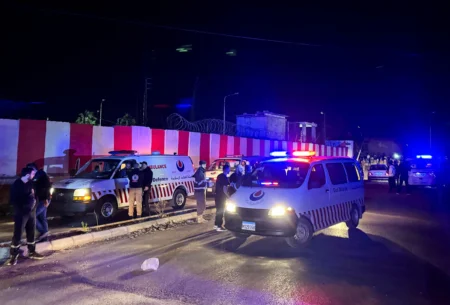Chile will hold a presidential run-off after leftist former labor minister Jeannette Jara and far-right leader Jose Antonio Kast topped Sunday’s first round of voting. The election has been dominated by voter concern over violent crime, including murders, kidnappings, and extortion.
With 82.97 percent of votes counted, Jara, 51, representing an eight-party leftist coalition, received 26.71 percent. Kast, 59, earned 24.12 percent, according to Chile’s Servel electoral service.
Kast has campaigned on strict border security, promising walls, fences, and trenches along Chile’s northern border with Bolivia to block migrants from countries like Venezuela. He called for national unity and pledged to “rebuild” Chile after four years of center-left rule, describing the current government as “maybe the worst in Chile’s democratic history.”
Jara, who served under outgoing President Gabriel Boric, focused on law enforcement and economic reforms. She promised to hire more police, lift banking secrecy to combat organized crime, and address cost-of-living concerns. Despite these pledges, her vote total fell below poll predictions, while Kast exceeded expectations.
Rodrigo Arellano, an analyst at Chile’s University for Development, described the results as “very bad news” for Jara. He noted that opposition candidates collectively received nearly double her total, reflecting strong anti-communist and anti-incumbent sentiment.
“Don’t let fear harden your hearts,” Jara urged voters, criticizing overly harsh security measures while appealing for moderation.
Economist Franco Parisi finished a surprising third with 19.42 percent, ahead of ultra-right MP Johannes Kaiser at 13.93 percent and former conservative mayor Evelyn Matthei at 12.70 percent. Parisi has not endorsed either candidate for the December 14 run-off, suggesting both must court additional voters directly.
Chileans also voted Sunday for members of the Chamber of Deputies and Senate.
Although Chile is one of Latin America’s safest countries, the murder rate has doubled over the past decade, surpassing that of the United States. The rise in crime coincides with a doubling of the immigrant population since 2017, now at 8.8 percent of residents. Extensive media coverage has fueled demands for a “mano dura,” or iron-fist approach.
“I hope we can return to the way things were before,” said Mario Faundez, an 87-year-old voter in Santiago’s Providencia district. “If we have to kill [criminals], so be it,” he added.
The run-off is seen as a major test for South America’s left, which has recently suffered setbacks in Argentina and Bolivia and faces strong competition in upcoming Colombian and Brazilian elections.
If elected, Kast would become Chile’s first far-right leader since the 1973-1990 military dictatorship under Augusto Pinochet, whose regime was responsible for the deaths of thousands of dissidents. Kast has defended Pinochet and maintains conservative positions, including opposition to abortion even in cases of rape.
Patricia Orellana, 56, who voted for Jara, expressed concern over potential rollbacks in women’s rights under a Kast administration.
The December 14 run-off will determine whether Chile moves toward a leftist reform agenda or a far-right response emphasizing strict security and traditional values.







